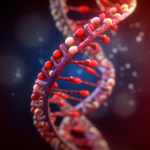“The I.T. Crowd” is a British sitcom that revolves around the comedic escapades of the socially awkward IT department located in the basement of Reynholm Industries. The series follows the misadventures of tech geeks Moss and Roy, and their computer-illiterate manager, Jen, as they navigate both the technical and social challenges of their daily lives.
In Season 3 Episode 3 (Tramps Like Us), Jen interviews for a new job at another company. During the interview she is asked the meaning of “I.T.” She has no answer so she excuses herself to the “loo” in order to call Moss or Roy for the answer. The following conversation ensues.

Jen: [On the phone] What does IT mean?
Moss: What?
Jen: IT. What does it mean? Someone just asked me.
Moss: You don’t know what it means?
Jen: No, I never thought to ask.
Moss: This must be Jen!
The answer to the question, of course, is “information technology.” That raises an even more interesting question.
What is Information?
knowledge obtained from investigation, study, or instruction
or
the attribute inherent in and communicated by one of two or more alternative sequences or arrangements of something (such as nucleotides in DNA or binary digits in a computer program) that produce specific effects
or
the communication or reception of knowledge or intelligence
https://www.merriam-webster.com/dictionary/information
Information can be thought of as facts, knowledge, or data that reduces uncertainty about some topic or phenomenon. It is what is conveyed or represented by a particular arrangement or sequence of things. It isn’t just about some random arrangement of data, but rather what is communicated or represented by that data.
For example, human DNA contains all the information needed to grow a human immediately following conception. I think we can all agree, humans are complex creatures.
How Much Information Can Human DNA Store?

To determine how much information human DNA can store, we can consider the length and structure of DNA and then make a comparison with computer storage.
Human DNA Information Storage:
- Base Pairs: The human genome contains approximately 3 billion base pairs.
- Encoding: Each base pair can be one of four possible nucleotides: Adenine (A), Thymine (T), Cytosine (C), or Guanine (G). If you were encoding this information digitally, you’d need 2 bits per base pair, since 2 bits can represent four possible states (00, 01, 10, or 11).
- Calculation:
- 3 billion base pairs × 2 bits/base pair = 6 billion bits.
- 6 billion bits ÷ 8 (since there are 8 bits in a byte) = 750 million bytes or 750 megabytes.
Comparison with Computer Storage:

The human genome, when simply represented as raw sequence data, would take up about 750 megabytes of storage. This might sound like a lot, but it’s only slightly larger than the storage needed for a long movie or hundreds of high-quality photographs. Most modern smartphones, computers, and external storage devices offer storage capacities that are hundreds to thousands of times larger than this.
However, note the following:
- The 750MB figure only considers the raw sequence and doesn’t account for additional data that might be used to describe gene functions, interactions, annotations, etc. When you add all the metadata and other functionalities for practical applications, the storage requirement would be higher.
- The storage capacity of DNA becomes impressive when you consider the density and volume. Theoretically, a gram of DNA could store about 215 petabytes (215 million gigabytes) of data, which is immensely dense compared to modern electronic storage devices.
- DNA storage also has potential longevity advantages. Under the right conditions, DNA can remain stable for thousands of years, unlike many electronic storage devices that degrade over a few decades.
- Researchers are exploring synthetic DNA data storage, which capitalizes on these properties of DNA to store vast amounts of data in a tiny physical space for extended periods.
While an individual’s genome might not seem to carry as much “data” as a modern high-capacity hard drive, the potential of DNA as a medium for data storage is immense due to its density and longevity.
Consider the Design

Consider the design of the modern computer, or even the modern smartphone. Modern computers and smartphones represent pinnacle achievements of human ingenuity and technological evolution. The complexity of their design is nothing short of astounding. Beneath the sleek exteriors of these devices lies a labyrinth of intricately interconnected circuits, each smaller than a human hair yet packed with billions of transistors that process and store vast amounts of information. Multilayered architectures allow these machines to execute multiple tasks simultaneously, bridging software and hardware to achieve the work of hundreds if not thousands of individuals.
Meanwhile, smartphones, despite their compact size, seamlessly integrate a range of functionalities, from high-resolution cameras to advanced sensing technologies, all the while maintaining connectivity in a global web. The culmination of decades of research, innovation, and miniaturization, these marvels of engineering stand as testaments to humanity’s relentless pursuit of knowledge and mastery over the digital realm.
Consider the Designer
Modern computers and smartphones pale in comparison to the profound complexity of human beings. The DNA in every human cell contains a biological code with roughly 3 billion base pairs that weave the story of our genetics, heritage, and biological functions. This vast repository of information, if considered in digital terms, is like an ultra-sophisticated operating system running the most advanced machine ever known — the human body.
Unlike the static designs of electronics, the human system is dynamic, capable of growth, self-repair, reproduction, and responding adaptively to its environment. Additionally, the interplay of countless cells, each with its unique function and contribution to the larger organism, alongside the myriad biochemical reactions, neural networks, and physiological processes, showcases a level of complexity that no human could ever dream of reproducing. While our technological creations are undoubtedly impressive, they serve as humble reminders of the intricate and awe-inspiring design of life itself.
Who, in today’s world, would see someone use their smartphone to place a call, check emails, engage in social media debates, and then book a dinner, and believe that this incredible device just spontaneously sprouted in a woodland clearing? It’s inconceivable to think that a smartphone emerged from mere random interactions of matter, regardless of the duration. Clearly, the smartphone is the handiwork of a thoughtful designer.
And so are you!
You Were Designed
Modern “evolutionary science” must deal with the fact that humans are designed. Consider the following:
Darwin not only affirmed that his mechanism could generate significant biological change, but that it could explain the appearance of design—without invoking the activity of an actual designing intelligence. In doing so, he sought to refute the design hypothesis by providing a materialistic explanation for the origin of apparent design in living organisms. Modern neo-Darwinists also affirm that organisms look as if they were designed. They also affirm the sufficiency of an unintelligent natural mechanism—mutation and natural selection—as an explanation for this appearance. Thus, in both Darwinism, and neo-Darwinism, the selection/variation (or selection/mutation) mechanism functions as a kind of “designer substitute.” As the late Harvard evolutionary biologist Ernst Mayr explains: “The real core of Darwinism . . . is the theory of natural selection. This theory is so important for the Darwinian because it permits the explanation of adaptation, the ‘design’ of the natural theologian, by natural means.” Or as another prominent evolutionary biologist, Francisco Ayala, has put it succinctly, natural selection explains “design without a designer.”
Meyer, Stephen C. Darwin’s Doubt: The Explosive Origin of Animal Life and the Case for Intelligent Design. First Edition. New York, NY: HarperOne, An Imprint of HarperCollins Publishers, 2013. (emphasis mine)
There is no refuting that humans were designed, or at least, they appear designed. Richard Dawkins notoriously posits the idea of an intelligence seeding the planet because even he knows that you cannot escape the designed nature of everything we see.

Ben Stein: What do you think is the possibility that Intelligent Design might turn out to be the answer to some issues in genetics or in Darwinian evolution.
Richard Dawkins: Well, it could come about in the following way. It could be that at some earlier time, somewhere in the universe, a civilization evolved, probably by some kind of Darwinian means, probably to a very high level of technology, and designed a form of life that they seeded onto perhaps this planet. Um, now that is a possibility, and an intriguing possibility. And I suppose it’s possible that you might find evidence for that if you look at the details of biochemistry, molecular biology, you might find a signature of some sort of designer.
The only thing Dawkins accomplishes is kicking the can further down the road. He has no answer – no evolutionary scientist has the answer – to how life started.
But there is an answer!
The Answer to Life, the Universe, and Everything
The answer to the question of life, the universe, and everything, according to Douglas Adams’ science fiction work “The Hitchhiker’s Guide to the Galaxy,” is “42.” In the story, after a supercomputer named Deep Thought computes for 7.5 million years to determine the answer to the ultimate question, it comes up with the seemingly arbitrary number 42, highlighting the absurdity and complexity of such a quest. Adams himself stated that he chose the number 42 arbitrarily and didn’t intend for it to have a specific philosophical or mathematical significance.
This is the Way
While 42 may not be the answer to everything, seeking the answer is not absurd or complex. The answer centers on a person who truly lived and died in history. He also raised himself from the dead and ascended into heaven. The following 5 questions will answer this larger question (the answer) by exploring Who is God, Who Are You, Who is Jesus, What Has Jesus Done, and What Must You Do.
Who is God?
God is the incomprehensible Creator whose attributes are evident in the wonders of the world around us. The Bible says, “For since the creation of the world God’s invisible qualities—his eternal power and divine nature—have been clearly seen, being understood from what has been made (Romans 1:20).” The magnificence of the universe, from the vastness of galaxies to the intricate details of a single cell, bear testimony to God’s power and majesty. There is an inconceivable chasm of difference between God and you (His creation). “…For who has known the mind of the Lord? Or who has become His counselor? Or who has first given to Him and it shall be repaid to Him?… (Romans 11:33-36)” God’s wisdom and knowledge are unfathomable. He is the source, sustainer, and purpose of all creation, deserving of eternal praise.
Who Are You?
“In the beginning, God… (Genesis 1:1)” created everything, including the first man and woman, Adam and Eve. Eve was deceived by the serpent, taking and eating from the Tree of the Knowledge of Good and Evil and gave some to Adam, who also ate. Adam’s disobedience to God, his sin, plunged all of creation and all people after him into fallenness. After Adam, all people are born sinners. Paul says quoting the Psalms that, “none is righteous, no not one (Romans 3:10).” He also says that “all have sinned and fall short of the glory of God (Romans 3:23).”
Answer honestly: are you perfect? You know that you are not, because you don’t even meet your own standards perfectly. God’s standards are much higher than yours, even if they are simple.
You shall not steal; you shall not deal falsely; you shall not lie to one another. You shall not swear by my name falsely, and so profane the name of your God: I am the Lord.
Leviticus 19:11-12 (ESV)
Have you ever stolen anything? Even something simple and small, like downloading a song that you did not purchase?
Have you ever dealt falsely? Have you ever manipulated or deceived someone to get your own way?
Have you ever told a lie?
Have you ever used the Lord’s name as a curse?
You have heard that it was said, ‘You shall not commit adultery.’ But I say to you that everyone who looks at a woman with lustful intent has already committed adultery with her in his heart.
Matthew 5:27 (ESV)
Have you ever looked lustfully at another person who is not your spouse? According to Jesus, you have broken God’s law!
You have heard that it was said to those of old, ‘You shall not murder; and whoever murders will be liable to judgment.’ But I say to you that everyone who is angry with his brother will be liable to judgment; whoever insults his brother will be liable to the council; and whoever says, ‘You fool!’ will be liable to the hell of fire.
Matthew 5:21-22 (ESV)
Have you ever been angry with someone (your brother) or insulted them? Jesus says you have committed murder in your heart!
If you have broken any one of God’s commands, then you have broken them all, “For whoever keeps the whole law but fails in one point has become guilty of all of it (James 2:10).”
You know there is a just and holy God, but you “suppress the truth (Romans 1:18)” because of your sin. Not only that, you have “exchanged the truth about God for a lie and worshiped and served the creature rather than the Creator (Romans 1:25).”
Who is Jesus?

Image by Gerd Altmann from PixabayGod knew that man would never be able to meet His standards. He knew that YOU would be born a sinner and would continue to sin. God made a way by sending His only begotten Son, Jesus Christ, “who was descended from David according to the flesh and was declared to be the Son of God in power according to the Spirit of holiness by his resurrection from the dead (Romans 1:3-4).”
The first Adam disobeyed God and sinned, plunging all of creation into disarray and breaking the relationship we were supposed to have with God and one another. Jesus Christ, the Second Adam, obeyed all of the Law. He lived a perfect, sinless life and “condemned sin in the flesh (Romans 8:3).”
What then shall we say to these things? If God is for us, who can be against us? He who did not spare his own Son but gave him up for us all, how will he not also with him graciously give us all things?
Romans 8:31-32 (ESV)
What does it mean that God did not spare his own Son?
What Has Jesus Done?
God put Jesus “forward as a propitiation by his blood (Romans 3:25).” That’s a fancy way of saying Jesus suffered the wrath of God that you rightly deserve because of your rebellion and sin. “The wages of sin is death (Romans 6:23)” and you (and I) have sinned. We all deserve death and an eternity of torment in hell.
But Jesus took that punishment. Jesus lays down His life for His people (John 10:15). Jesus was sinless and yet sinful men forced him into a false trial and condemned Him to death on a cross. He was crucified by Romans, and on that cross the wrath of God was poured out upon Him… for sinners.
God shows his love for us in that while we were still sinners, Christ died for us
Romans 5:8 (ESV)
Yes, you deserve death and hell, but God has made a way for you to have eternal life! AND it is a free gift.
For the wages of sin is death, but the free gift of God is eternal life in Christ Jesus our Lord.
Romans 6:23 (ESV)
What Must You Do?
The fact that you are a sinner and deserve death is the bad news. Here is the good news (aka the Gospel). And it couldn’t be more simple.
“If you confess with your mouth that Jesus is Lord and believe in your heart that God raised him from the dead, you will be saved (Romans 10:9).”
Easy, right?
When you confess that Jesus is Lord, you are making the statement that He is right about your sin. This includes repentance, which just means a “change of mind.” Believe that you have sinned against a holy God and deserve His wrath.
Believe that He is the Son of God and that “God raised him from the dead.”
Then simply ask God for mercy. Ask Him to forgive you, “For everyone who calls on the name of the Lord will be saved (Romans 10:13).”
If you would like to chat with somebody about Jesus, go to newbeliever.net and click on the yellow Let’s Chat button. There is also more information about Christianity on that site.
